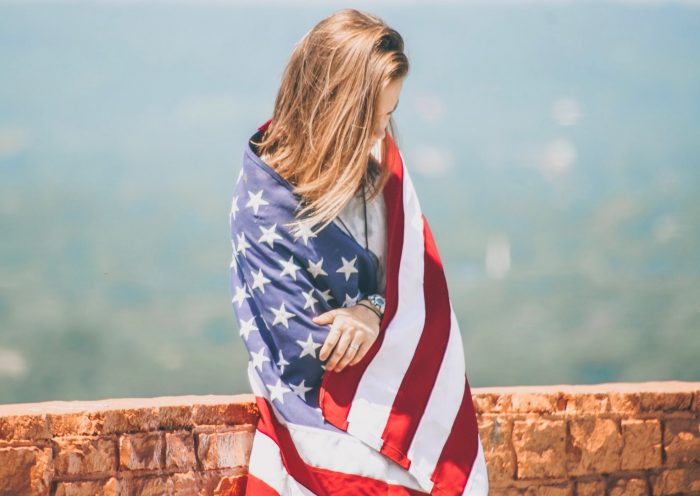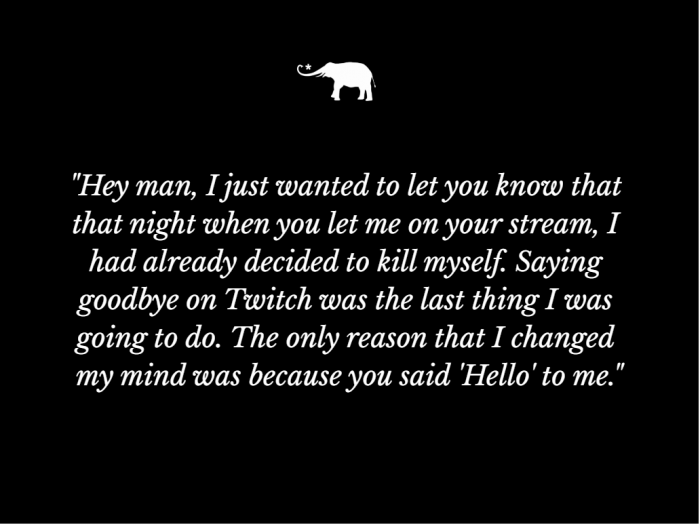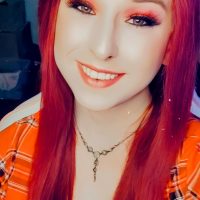Author’s note: The statistic is listed as 27 people per 100,000. There are conflicting reports and studies over varying demographics. The main takeaway is we need to come together because one is one too many.
~
How one person went from the brink of suicide to president and CEO of a nonprofit organization dedicated to fighting back against the veteran suicide crisis we are facing.
On December 21, 2020, I had effectively decided to end my life.
This was not another attempt. This was not another cry for help. I had come to a conclusion that the only sensible option was to just close my eyes forever.
I have seen the world and humanity at its worst in my time in the military and my traumas were insurmountable. I had already lost eight years of my life to rampant alcoholism and I just couldn’t stomach another rehab, another program, or another promise that something would help me find sobriety and happiness in this life. Hope had left me that night.
Going back a bit, I was born as Justin Kardamis in 1992. I joined the Air Force in 2010 at 18 years old and thanks to my ASVAB scores, I was lucky enough to choose my career field, so I chose Geospatial Intelligence Analyst. Through wild chance and circumstance, I had the opportunity at 19 years young to cross-train for Special Operations with the 12 Reconnaissance Squadron where I have my one and only claim to fame in my service. The team that I was on is partially attributed to finding the most wanted criminal in the history of mankind: a guy by the name Osama bin Laden. Of course, the juicy details are all still classified, so I won’t be going into those—but last I heard, “Ladies and gentlemen, we got him.” It wasn’t long after that that I was separated from the Air Force after two short years of my six-year contract with an Honorable Discharge.
Fast forward about 10 years, I had been through divorce, homelessness, alcoholism, involuntary psychiatric holds, and numerous attempts at my own life, some for attention and some with intention. The ringer if you want to call it that.
Whether it was divine intervention or YouTube’s algorithm knowing what I needed, on the night I was to end things, a song I had never heard before came across my computer screen and brought me back from the brink: “I’m Not Dead” by Boyinaband. When all the emotions came flooding back, I crumpled and cried on the floor until I fell asleep.
Two days later, I figured that if I was going to end things then I really had nothing to lose—so I put my fear of failure aside and decided to pursue streaming on Twitch. This was a long-time dream of mine, and I had every intention to make it to the top with the big dogs. Fortunately, I wound up anywhere but there.
While I was figuring out the world of streaming, I realized that weirdly, the more I started to be my true self with no act to put on, the more people seemed to flock to the channel and connect with me. For the sake of not making this way too long, over the course half of a year I dove deep into the world of mental health on a journey to finally learn who I was and to make sense of my mind. I did everything live and on stream for everyone to see—good or bad—to prove that if I could do it, so could anyone.
I learned what my sexuality was in front of everyone, and surrounded by new friends I’d made in my streaming journey, I stumbled across the realization that I am, in fact, transgender which made a lot of things make a lot of sense in my life looking back. I did this all in the public eye.
But one night, something even more profound happened between me and a user named “Daddyswick” in my chat.
I had developed a theme of “Mental Health and Chill” nights where I would have a guest and we’d simply explore the mind together—feelings, thoughts, emotions, what ifs, and whatnots. I was lacking a guest on one particular evening, and someone I had never seen before came through the chat. Starting with, “Hey, what’s good Daddyswick,” I invited this stranger onto the podcast segment of the stream to talk mental health. We had a wonderful talk and it turned out that Daddyswick was actually Chris “Jigsaw” Webber, former United States Navy Special Warfare Combatant-craft Crewmen—the baddest dudes on the planet! What an honor and privilege it was to meet one. We talked for a few hours and parted ways for the night.
Fast forward a few days later, I received a DM from Daddyswick that said something that changed my life and the world itself.
It was right then and there that VGMH (Veterans Gaming and Mental Health) Mission was conceived, formulated, realized, and brought to life conceptually.
I was just some person who knew I wanted to help others. Upon realizing the real power of being kind to my fellow human beings, I decided to make this something legitimate.
I cannot express how ignorant I was to what a nonprofit even was or how they worked. I just assumed “nonprofit” meant we don’t make any money, which I was cool with, and boy did I have a lot to learn
Trial and error, mishaps, and a few cases of being taken advantage of took place—but now, as I’m writing this, we are a 501(c)3 organization that is dedicated to fighting back against the veteran suicide crisis that we are in the midst of.
According to a study from Brown University that took place over the course of 20 years, for every one death overseas, there are four veterans who have committed suicide. The real average number of veterans who lose their battle at home every day is 27.5 people (see author’s note above).
That is an unfathomable number to me, given that military and veterans make up less than one percent of the population as a whole. That’s 27 of me, 27 of that veteran you know, 27 human beings who signed a dotted line agreeing to pay with their lives for our freedom, who then end their own lives every day. With the pandemic and influx of service members returning from overseas, that number is projected to be even higher this year—unless something changes.
We are going to be the change in the world that we want to see.
We are going to continue to take proactive measures to place “safety nets” for the times we do fall into the trenches of the mind. We will continue to show the world that trauma can be dealt with by facing it together and realizing that our emotions will never kill us. What will kill us is running from those feelings until we can’t run anymore—when those emotions catch up to us as they always do. After all that running away, we find ourselves too tired to face them and that makes suicide seem like the only way out of this insurmountable amount of pain.
I’m here to tell veterans that they can do it. They can learn how to effectively cope with trauma in healthy outlets and measures. I definitely am no professional regarding psychology. I’m not a doctor and I’m not here to diagnose anyone or purport that I am in any way. What I do have, however, is 29 years of experience in hating myself, years of depression, countless traumas starting from early childhood, and the proof that open therapeutic discussion can change everything.
Therapy doesn’t always have to take place in a therapist’s office—but I am a major advocate of therapy in whatever form works for you and professional help is often needed along with the appropriate medicinal combination to give you a hand up.
What I can say for certain though is that if I can find happiness in this life and overcome my mind, I promise you you can too. I am the laziest person I know. If there’s an easy route, I’m going to take it. If I can get out of doing something, trust and believe I’m going to squirrel my way out of it. With all that being said, I found a way out of depression, anxiety, hating myself, survivor’s guilt, and a general sense of nihilism. All it took was being honest with myself and those around me, facing my fear of emotions, and just simply talking about it with other people who care about me and my pain.
Never in a million years did I expect to be the founder, president and CEO of anything, especially a nonprofit organization that is saving and changing lives. Nor did I expect to ever identify myself as a woman. Yet, here we are.
While there are so many things I don’t know and so many times that I don’t know what I was doing in life, I know that when it comes to mental health and my brothers and sisters in arms, I will give it my all and try my best to continue to learn everything I can for the sake of effectively helping those in need.
The proof is in my existence. Open therapeutic discussion works. VGMH Mission is simple at its core: a group of like-minded human beings, regardless of background and story, who are welcomed with arms wide open and judgement cast aside. There’s enough negativity in this world as it is, and life is already hard enough. The whole principle is to simply have empathy and sympathy for the human condition and love people for who they are.
On closing, VGMH Mission is something I’m proud of. I know what we are doing as a collective is changing the world for the better. While we may not be able to prevent every single loss of our veterans, we can and will continue to do everything in our power to prevent the next one.










Read 7 comments and reply